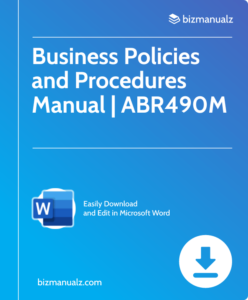How a Profitable Business Can Run Out of Cash

Out of cash and perplexed? Alarming, right? Even when profitable, a lack of liquid funds can stop operations. Reasons vary, but some include: poor cash flow management, excessive debt, and market shifts. To avoid this, build an emergency fund and monitor financials. Budgeting, credit terms, and alternative financing are key. How a profitable business can run out of cash.
What is a profitable business?
A profitable business is one that gets more money than costs, leading to positive cash flow. It means success and sustainability for the company. Let’s look into what creates a profitable business.
- Strong Earnings: Businesses that make money always earn more than what they cost, letting them gain positive net income.
- Cost Management That’s Efficient: Companies that are profitable spend time on lowering expenses and making sure resources are used in the best way.
- Market Demand: Making sure customers have what they want and offering services or products that people want helps the business to be profitable.
- Growth Possibilities: Profitable companies show potential for growing by finding market chances and increasing their customer base.
Apart from these points, it’s important to understand that while profitability is significant for a business, it won’t guarantee positive cash flow. Reasons for this could include customers paying late or too much spent on stock. This shows how essential it is to manage cash flow well.
A study by U.S. Bank shares that 82% of small businesses fail due to cash flow management that’s not good. Watching your finances is key for maintaining profitability and making sure you have long-term success.
Importance of cash flow for a profitable business
Cash flow is an absolute must for the success of any successful biz. It guarantees that there’s enough dough coming in to cover costs and keep things running smoothly. Without sound cash flow management, even a winning biz can find itself in hot water quickly.
- Conventional cash flow lets businesses pay their bills and settle financial obligations on time.
- It gives the funds needed to invest in growth possibilities, like increasing operations or launching new products.
- Having a positive cash flow allows businesses to build up reserves for emergencies or unforeseen costs.
- Cash flow also helps businesses stay in good terms with suppliers and creditors, as timely payments show dependability and trustworthiness.
- A prosperous cash flow allows businesses to draw investors or secure loans, as it reveals stability and possibility for future profitability.
- Checking cash flow regularly let businesses detect any issues early and take corrective measures before they become huge problems.
Furthermore, efficient cash flow management involves not just monitoring income and expenses but predicting potential changes in both. By being proactive in studying market trends, customer habits, and economic changes, businesses can adjust their strategies accordingly and make sure they have enough liquid funds at all times.
Common reasons why a profitable business may run out of cash
A profitable business without cash? Not unheard of. There’re a few reasons why this may be the case. Poor cash flow management, too much spending, or unforeseen costs.
- Cash flow management: Poor management can spell trouble for a biz. When not tracking and controlling inflows and outflows, it gets tough financially.
- Excessive spending: Even if a business is making money, overspending can deplete cash reserves.
- Unexpected expenses: Mechanical issues, legal fees, or emergencies, these can quickly wipe out available cash.
It’s essential to manage cash flow, control spending, and plan for the unexpected.
Here’s an interesting fact – US Bank research in 2019 reported poor cash flow management to be the reason behind 82% of small biz failures.
Case studies/examples of profitable businesses running out of cash
Profitable businesses can still hit a wall when it comes to cash. Let’s take a closer look at some examples.
A tech startup is a great example. They were doing well, but bad money management and expensive offices and perks caused them to run out of cash.
Another case is a retail chain that spread too fast and borrowed too much. This meant they couldn’t keep up with inventory and ran into cash trouble.
A manufacturing business also had problems. An economic downturn caught them off guard, using up their resources while trying to pay costs.
In the entertainment industry, even successful film companies can get liquidity issues from project delays or budget overruns. This can stop operations and cause a crisis.
An e-commerce giant had difficulties due to an aggressive expansion plan. Logistical issues and higher costs than expected caused financial strain and a need for external help.
These cases highlight common problems for businesses. It’s important to find profit and financial stability for the long-term.
Now, let’s talk about a software company from 2000. They made money from licenses and products, but got hit with legal proceedings which demanded big payments. This drained their cash quickly, forcing them to take drastic measures to stay afloat.
Impact and consequences of running out of cash
No cash can spell disaster for a successful business. First, it can cause important operations to stop, like paying staff or suppliers; leading to a complete breakdown of the company.
Second, it can stop growth and expansion, as there’s no money to invest in new projects or technologies. Third, it can damage the business’s reputation and hinder its creditworthiness; making it hard to get financing in the future.
Furthermore, when a business runs out of cash, it might be forced to make difficult decisions like firing people or downsizing. These actions can have a lasting impact on employee morale and company culture.
Also, running out of cash can make it harder to attract investors or get loans from banks. This lack of financial stability could tell potential investors that the business can’t manage money well.
A report by Small Business Trends shows that 82% of businesses fail due to bad cash flow management. This emphasizes how essential it is for a company to maintain good finances and have enough liquidity.
Strategies to prevent a profitable business from running out of cash
Professionals know how to maintain profitable businesses from running out of cash. Here are a few effective strategies:
- Monitor & Control Cash Flow: Analyze financial statements often, project 6-weeks cash flow, and put strong internal controls in place.
- Create a Budget: Draft a budget that goes with your biz goals & keep expenses reasonable.
- Manage Accounts Receivable: Have efficient invoicing systems, give incentives for early payments & set clear credit policies to stop late & unpaid invoices.
- Negotiate Favorable Payment Terms: Boost supplier relationships by negotiating longer payment terms, taking advantage of vendor discounts & exploring alternative financing.
- Diversify Revenue Streams: Lower the risk of relying solely on one product or service by expanding offerings & entering new markets for a larger customer base.
Also, protect cash reserves & reduce unnecessary expenses to solidify the financial health of a profitable business. Invest in tech to streamline operations & cut costs. Look into other sources of funding such as loans or venture capital when needed.
Don’t wait- take proactive measures to make sure your profitable biz is safe from cash issues!
Profitable Business Can Run Out of Cash
Cash issues can suddenly appear in profitable businesses, causing problems. These takeaways will help you understand why and how to prevent it:
- Watch cash flow carefully: Examine your financial records regularly to detect possible issues. Keep tabs on both receivables and payables.
- Manage inventory economically: Too much stock ties up cash, leading to financial tension. Utilize strategies such as just-in-time inventory control to reduce costs.
- Control expenses: Cut unhelpful expenses and focus on cost management. Review your budget regularly and find areas where you can save without sacrificing quality or service.
- Broaden your customer base: Relying too heavily on one or a few large customers puts your business at risk. Broaden your customer base to lessen the impact if a big client stops working with you.
- Build a cushion: Set aside cash reserves for emergencies. Having a safety net can help you survive unexpected challenges without a cash crunch.
Furthermore, it’s essential to be aware of the unique features of each industry when handling cash flow successfully. Each sector has its own challenges and opportunities, so make sure you know the special factors that affect your business.
Act now to avoid a cash shortage in your profitable business. Put these takeaways to use, keep an eye on finances, and make wise decisions for the future of your company. Don’t let the fear of missing out on financial stability motivate you to turn a blind eye to the potential risks. Proactively managing cash flow will help secure a prosperous future for your business.
Frequently Asked Questions

1. How can a profitable business run out of cash?
Answer: A profitable business can still run out of cash due to various reasons, such as poor cash flow management, excessive spending, unexpected expenses, or delayed payments from customers.
2. What are the signs that a profitable business is running out of cash?
Answer: Some common signs include difficulty in paying bills or suppliers, increasing debt, inability to meet payroll, delays in purchasing inventory, and limited access to financing options.
3. How can a business improve its cash flow?
Answer: Businesses can improve cash flow by closely monitoring and managing expenses, negotiating better payment terms with suppliers, incentivizing early customer payments, reducing inventory levels, and exploring financing options like lines of credit or invoice factoring.
4. Can a profitable business prevent running out of cash?
Answer: While it’s challenging to completely prevent running out of cash, businesses can take proactive measures to mitigate the risk. This includes creating accurate cash flow forecasts, maintaining a cash reserve, minimizing unnecessary expenses, and implementing effective credit control measures.
5. What are the consequences of running out of cash for a profitable business?
Answer: Running out of cash can have severe consequences, including the inability to pay employees or suppliers, damage to the business’s reputation, missed growth opportunities, legal issues, decreased morale among employees, and even closure of the business.
6. When should a business seek professional help if cash flow becomes a concern?
Answer: It’s advisable for a business to seek professional help as soon as cash flow becomes a concern. This could include consulting with financial advisors, accountants, or business consultants who can provide guidance, develop strategies, and offer solutions to improve cash flow.
















Leave a Reply